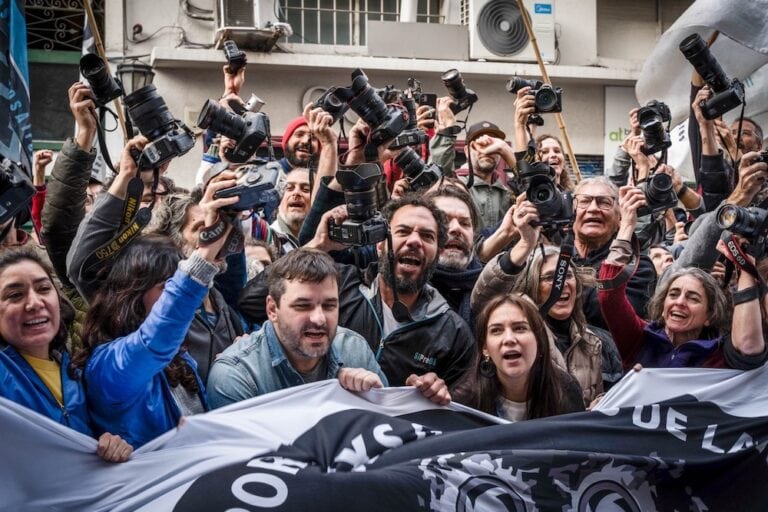(Periodistas/IFEX) – On Wednesday 10 November 1999, Florencio Minatta, the judge in charge of Preliminary Court Number II in Trelew, Argentina, ordered the preventive detention of six people charged with the assassination of journalist and editor Ricardo Gangeme. According to the reasoning behind the Judge’s sentencing, the most valid hypothesis is that the journalist was […]
(Periodistas/IFEX) – On Wednesday 10 November 1999, Florencio Minatta, the
judge in charge of Preliminary Court Number II in Trelew, Argentina, ordered
the preventive detention of six people charged with the assassination of
journalist and editor Ricardo Gangeme. According to the reasoning behind the
Judge’s sentencing, the most valid hypothesis is that the journalist was
killed because of investigations he was undertaking for his weekly
newspaper, “El Informador Chubutense.”
In the last four issues, Gangeme published information on irregularities in
three on-going legal suits against the directors of the Trelew Electrical
Cooperative (Cooperativa Eléctrica de Trelew). The irregularities occurred
while the cooperative was purchasing supplies from a company named Corralon
Fernandes. One of the accused, Osvaldo Viti, was the head of the cooperative
‘s core leadership, and the other five were working to ensure that the
directors would be re-elected in internal elections that were slated for 18
May.
Gangeme was assassinated five days before the internal elections, and five
days after he denounced the company’s director, Héctor Fernandes, for
threatening to kill him. Judge Ricardo Basilico opened the case regarding
the death threats, and on 23 June, sentenced the businessman. According to
the proceedings, on the night of Saturday 8 May, Fernandes allegedly said to
the journalist: “You are going to pay with your life for what you are
writing.” Judge Minatta obtained the testimonies of people who confirmed
that Viti had mentioned several times that he intended to kill Gangeme.
In a conversation with PERIODISTAS, Judge Minatta confirmed that the
“collected elements and testimonies strengthened the speculation that the
assassination was linked to the victim’s professional activities. However,
the preventative detention of those six people is a provisional measure, and
as of this moment, new proceedings will take place. For example, the
confrontations between the accused and the testifiers, whose identities
remain secret, have not happened yet, and could change the case entirely.”
Minatta believes that if none of the parties appeal his decision before the
Preliminary Court of Appeals, the proceedings will end in a couple of weeks.
If it is appealed, the First Court of Appeals on Criminal Matters in Trelew
could start the case in May of next year.
The six people accused are Gustavo Fabián Smith, identified as the
perpetrator of the crime, Alejandro Fabián Zabala, as a prinicipal
assistant, and Osvaldo Daniel Viti, Alejandro Jara, Néstor Fabián Echauri
and Daniel Eduardo Soto as instigators of the crime.


